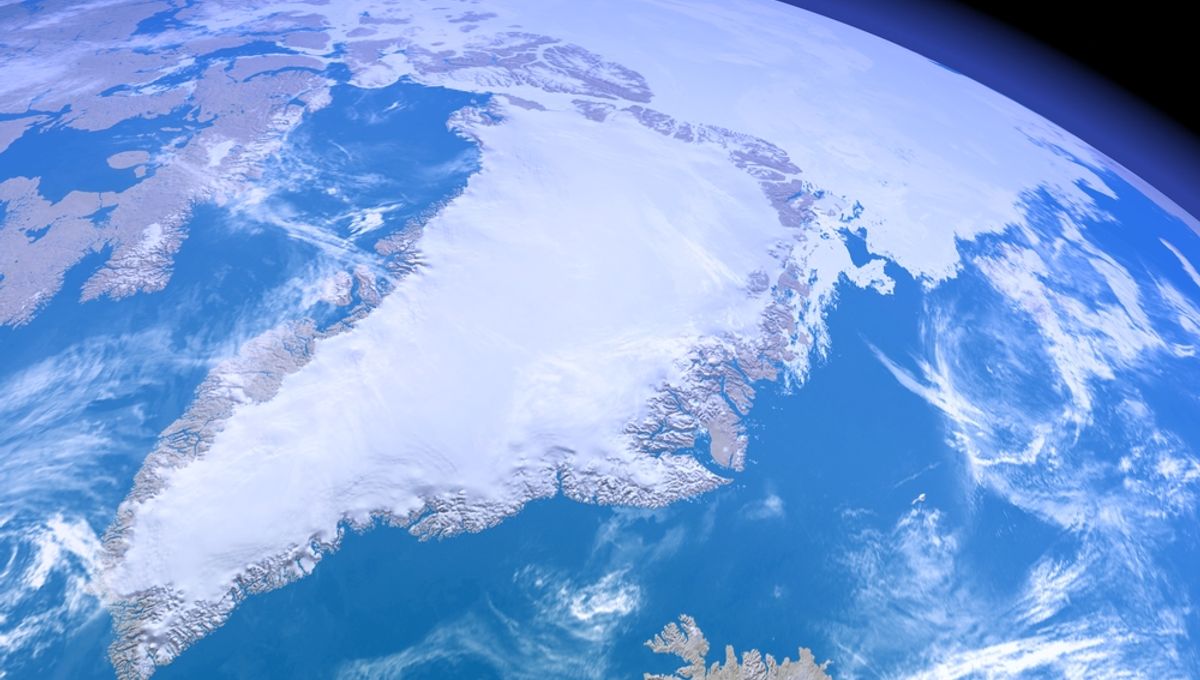
The warm ocean current that keeps northern Europe habitable is weaker than at any time in the previous thousand years, sediments and ice cores indicate. The finding increases the likelihood the current will weaken further, with catastrophic implications for the UK and Ireland, and bad news for many other places.
For thousands of years the Atlantic Meridional Overturning Circulation (AMOC), better known as the Gulf Stream System, has controlled northern Europe’s climate. Before that, the AMOC’s near-total shutdown 12,000 years ago is considered the prime suspect for producing the Younger Dryas event, where the world briefly plunged back into the ice age it had recently left.
Oceanographers have debated how a recent weakening compares to past movements, and whether it is a random drop or the start of a frightening trend. Professor Stefan Rahmstorf of the Potsdam Institute for Climate Impact Research has brought together multiple lines of evidence for the AMOC’s strength since 400 AD.
“The Gulf Stream System works like a giant conveyor belt, carrying warm surface water from the equator up north, and sending cold, low-salinity deep water back down south. It moves nearly 20 million cubic meters of water per second, almost a hundred times the Amazon flow,” Rahmstorf said in a statement.
Direct measurements of the system’s strength are a recent phenomenon, but we know it has weakened by 15 percent since the mid-20th Century. Nevertheless, proxy data from ocean sediments, ice core, corals, and even tree rings can provide an indication of its strength in earlier times.
Each individual proxy has missing periods or variations sufficient to create plenty of uncertainty. Putting them all together, however, Rahmstorf and co-authors conclude in Nature Geoscience the story is clear: the Gulf Stream has not been this weak for at least 1,600 years.
The AMOC is driven by dense salty water sinking in the North Atlantic. Lighter freshwater disrupts the process. It is feared excess rainfall or ice melting from surrounding areas will be enough to interfere, bringing the whole process to a halt.
Northern Europe is a climate anomaly. Nowhere else in the world are conditions so suitable for human survival so far from the equator. When Jacques Cartier explored Labrador he found it so bleak he called it; “The land God gave to Cain” to punish him for killing Abel. Yet the latitudes he was exploring were barely north of his native Brittany. It would take centuries before oceanographers would work out it was the Gulf Stream that made the difference, saving Cartier’s homeland, along with Britain and Scandinavia, from Arctic winters.
If the AMOC stops Europe will freeze, a process sped up 1000-fold, that formed the basis for the disaster film The Day After Tomorrow. Meanwhile, the pile-up of water that currently gets carried north will accelerate sea-level rise along the American east coast, hastening Florida’s drowning.
Rahmstorf’s findings come concurrently with the publication of modeling that shows the rate of change of freshwater entering the North Atlantic could do as much to turn AMOC off as the volume. If correct, this would also greatly increase the risk we face, since a pulse of heat-induced melting of Greenland’s ice – such as was seen in 2019 – might be enough to act as a very undesirable trigger.
The study is published in Nature Geoscience.
An earlier version of this article was published in February 2021.
Source Link: The Gulf Stream Is Weaker Now Than It Has Been For Over A Millennium